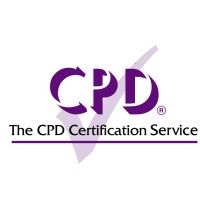|
28 - 29 FEBRUARY 2024 | OLYMPIA LONDON |
 |
Are you a UK Healthcare professional?
| 25-26 FEBRUARY 2026 OLYMPIA LONDON |
|
28 - 29 FEBRUARY 2024 | OLYMPIA LONDON |
 |
THE COUNTDOWN TO WOMEN'S HEALTH PROFESSIONAL CARE IS ON!
The inaugural Women’s Health Professional Care event is almost here, taking place at Olympia London (National Hall) on 28-29 February. This free event, providing up to 12 hours of CPD accreditation, is a must-attend event for healthcare professionals serious about reducing inequalities in healthcare services and treatment for women.
WHY NOW?
February 2024 is as great a time as ever for Women's Heath Professional Care, as conversations around women’s health have really started to take off. The rise in media attention, fuelled by documentaries spotlighting women's health and the newly unveiled 10-year health strategy, has brought women's health challenges to the forefront of public awareness. As a result, patient expectations are elevated, necessitating healthcare professionals to stay informed about all aspects of women's health to address patient inquiries and deliver improved care. Now is an opportune moment to join us for an event that emphasises these topics, offering a platform for education and, consequently, an enhancement in care.

YOU CAN ATTEND WOMEN'S HEALTH PROFESSIONAL CARE FOR FREE IS YOU ARE:

CONSULTANTS
(GYNAECOLOGY, OBSTETRICS, AND ONCOLOGY)

MIDWIFE

MATRON & SISTER

GP

SPECIALIST NURSE
WOMEN'S HEALTH PROFESSIONAL CARE CONFERENCE THEATRES
THE MENOPAUSE THEATRE
CONTRACEPTION & REPRODUCTIVE HEALTH THEATRE
THE WOMEN'S HEALTH WORKSHOP
GETTING TO WOMEN'S HEALTH PROFESSIONAL CARE 2024

Kensington (Olympia) is on the London Overground network.
It's one stop from Shepherd's Bush (Central line) or West Brompton (District line).
The venue is next to the station.

There is only a District line service from Earls Court on weekends. When travelling Monday to Friday, change at West Brompton for a 2 minute Overground train to Kensington (Olympia).
Central Line:Change at Shepherd's Bush for a 2 minute Overground train to Kensington (Olympia).
Piccadilly Line:Baron's Court is a 9 minute walk away from Olympia London.
Hammersmith & City Line:Hammersmith Station is a 5 minute bus ride or 15 minute walk away.
Circle Line:High Street Kensington is a 4 minute bus ride or 12 minute walk away. Hammersmith Station is an 5 minute bus ride or 15 minute walk away.

The following buses all stop within a very short walking distance of the venue:
9 - runs to and from Aldwych and Hammersmith.
23 - runs to and from Westbourne Park and Hammersmith.
27 - runs to and from Chalk Farm and Turnham Green.
28 - runs to and from Kensal Rise and Wandsworth.
49 - runs to and from White City and Clapham Junction.
391 - runs to and from Fulham and Richmond.
N9, N23, N27, N28 also run a night service.

Whilst it's quicker and easier to travel to the venue by public transport, we understand there is sometimes just a need to drive.
To assist with navigation, the postcode for the venue is W14 8UX or what3words: cages.fact.gloves
Visitors traveling by car are required to pre-book online to secure a space.
Pre-booked car park visitors should enter the car park from Blythe Road or Sinclair Road. Olympia Way is currently not accessible for visitors.
If you’re unable to book a space with the venue, there are off-site parking locations in the local area.
THE 2024 CONFERENCE PROGRAMME